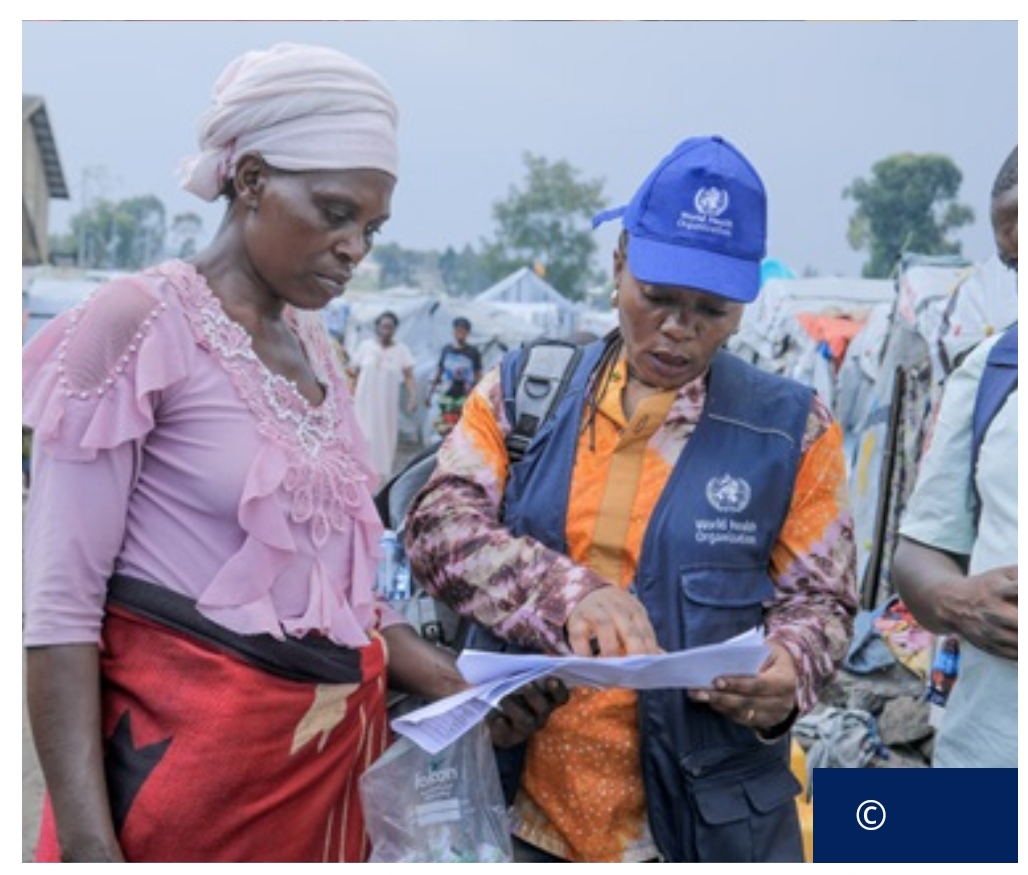WHO Results Report 2024 Shows Strong Progress on Global Health Goals Amid Financial Pressures.
Geneva:
Despite mounting financial constraints and geopolitical challenges, the World Health Organization (WHO) has reported notable progress toward global health goals, according to its Results Report 2024, released ahead of the Seventy-eighth World Health Assembly scheduled for May 19–27, 2025. The report offers a mid-term assessment of WHO’s performance in implementing its Programme Budget 2024–2025 and provides critical insights into its work across 150+ countries and territories.
Dr. Tedros Adhanom Ghebreyesus, WHO Director-General, emphasized the significance of the findings: “This report shows how, with WHO’s support, many countries are making progress on a huge range of health indicators, helping their populations to live healthier lives, giving them greater access to essential health services, and keeping them safer against health emergencies. In a world of multiple overlapping challenges and constrained resources, these results demonstrate why the world needs a strong and sustainably-financed WHO.”
Progress on Triple Billion Targets
The Results Report 2024 measures advancement toward WHO’s strategic “Triple Billion” targets set under the Thirteenth General Programme of Work (2019–2025):
Universal Health Coverage (UHC): An estimated 431 million more people now benefit from essential health services without incurring catastrophic health spending—nearly half of the goal of 1 billion. Gains were driven by expanded access to contraception, increased healthcare workforce capacity, and improved HIV treatment. However, financial hardships and immunization gaps persist.
Health Emergency Protection: Approximately 637 million more people are better protected from health emergencies due to strengthened preparedness, surveillance systems, and access to medical tools. Key reforms, such as updates to the International Health Regulations and the draft Pandemic Agreement—set for consideration at the upcoming World Health Assembly—have bolstered global response capacity. Still, funding shortages threaten pandemic readiness, particularly amid concerns about H5N1 avian flu.
Healthier Populations: WHO surpassed its target with 1.4 billion more people enjoying better health and well-being. This progress is attributed to reductions in tobacco use, better air quality, improved WASH access, and the transition to clean household fuels. However, rising obesity and alcohol consumption remain significant concerns.
Milestone Achievements in 2024
The report also spotlights several major accomplishments:
Neglected Tropical Diseases: Seven additional countries eliminated at least one neglected tropical disease in 2024, bringing the total to 54. Guinea worm disease is now on the brink of eradication.
Mental Health Access: Seventy million more people gained access to mental health services, with at least one million individuals receiving treatment for a mental health condition.
Emergency Response: WHO coordinated responses to 51 emergencies in 89 countries. In Gaza, a polio vaccination campaign reached over 500,000 children. In Africa, 259,000 mpox tests were distributed in 32 countries, and 6 million vaccine doses pledged globally.
Digital Health and Innovation: WHO’s global digital health certification network now enables approximately 2 billion people to access digital health records, advancing health data transparency and accessibility.
Workforce and Training: Over 15,000 health professionals and policymakers in 160+ countries were trained to address the health needs of refugees and migrants.
Collaborative Efforts: With UNICEF and other UN agencies, WHO helped secure multi-year funding in 15 high-burden countries, reaching 9.3 million children and saving an estimated 1 million lives.
Funding and Sustainability
Despite this progress, WHO continues to face funding shortfalls. The organization has launched a global Investment Round that has so far mobilized US$1.7 billion in pledges from 71 contributors—covering 53% of WHO’s voluntary funding needs. WHO has also introduced efficiency reforms, including digital innovation, better data usage, enhanced risk and security systems, and improved support services.
Looking Ahead
WHO’s Results Report 2024 provides a transparent overview of the organization’s impact and underscores the urgent need for sustained investment in global health. It serves as both a performance review and a roadmap for addressing future health challenges, particularly in the lead-up to 2030 Sustainable Development Goals.
The report reaffirms WHO’s commitment to accountability and transparency, offering member states and partners data-driven insights into where progress has been made—and where urgent attention is still required.



